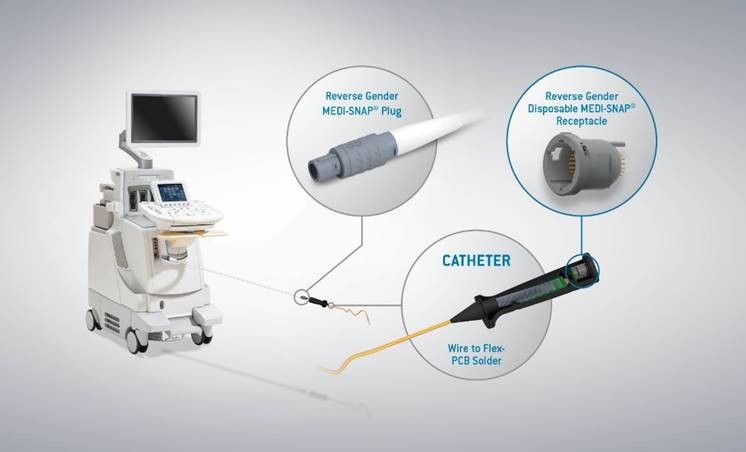 How disposable and reusable components can be combined in medical applications.
How disposable and reusable components can be combined in medical applications.
Whether in the medical or dental field or in home care, the question of the reusability of medical devices always arises. Generally, there are two different options: reusable items, which are cleaned after use and in most cases sterilized, or disposable items, which are subsequently disposed of.
Before an order is placed, the product manager of the medical end product must decide which components and accessories should be procured as disposable or reusable products, while always taking risk management into account. The patient comes first, for whom the highest safety standards apply. In addition to safety, the focus is on the cost, time, and quality requirements for the medical devices. Furthermore, easy handling of the products by the users (usually medical personnel) must be ensured. The goal here is to minimize the cost and effort associated with exchanging and replacing the respective medical components after use.
�
Durability is required
A wide variety of disinfectants and cleaning agents are used in everyday medical practice. These can affect the materials used in medical end devices and accessories, such as an assembled connector, in a variety of ways. Individual plastic components can become discolored, deformed by heat, crack, and even ultimately break. Customers expect high-quality, resource-saving, durable, and robust products that can be used in a wide range of applications, including endoscopy and robotics. In these areas, reusable products are often preferred due to the high cost of the end devices, which means that a long service life must be guaranteed. The ODU circular connector range includes numerous variants made of metal and plastic, which can be disinfected and sterilized � and are therefore extremely durable. In addition to the connector, the complete assembly can also be provided on request. For reusable products, a silicone overmolding including a silicone cable is typically used.
Focus on cost efficiency and time savings
Particularly in home care and in many areas of medical facilities, the trend is toward disposable products due to the extra costs involved in cleaning, sterilizing, and repackaging reusable devices. By choosing disposable solutions, these additional expenses can be eliminated � such as the cost of procuring an autoclave as well as the required disinfectants and sterile packaging materials. In the wake of the pandemic, it became necessary to deploy medical personnel in an even more efficient manner. Disposable products were increasingly preferred in order to avoid time-consuming cleaning and preparation of reusable medical devices. From an ecological point of view, the use of disposable components should perhaps be reconsidered. However, it is often not possible to avoid them due to the respective requirements.
ODU offers ready-made disposable breakaway connectors as well as disposable plastic receptacles for such cases. These products can be flexibly combined with all ODU MEDI-SNAP� products, which can withstand up to 5,000 mating cycles.
The combination makes all the difference
Each medical device has varying requirements in terms of safety, durability, and cost structure. As early as the product development phase, the manufacturer must decide which components will be used as reusable or disposable products. In most cases, the resulting solution will be a combination of both � cost-efficient, disposable accessory products that nevertheless meet all hygiene and safety requirements, and durable medical devices, monitoring systems, and robots which require extremely durable and robust components.
Meeting the strictest safety requirements
The Medical Device Regulation (MDR), which came into force on May 27, 2021, changed the requirements for manufacturers and distributors of medical devices. Adequate change management and appropriate risk management, as well as complete product traceability, are among its focal points. As a supplier for medical applications, ODU supports its customers in meeting these requirements. Furthermore, the medical industry relies on the highest levels of safety in accordance with IEC 60601-1 to ensure user and patient protection. In the event of a malfunction, complete touch protection of both the operator and patient is of particular importance. With specifications that include up to 2 MOOP (Means of Operator Protection) and 2 MOPP (Means of Patient Protection), ODU�s circular connector range complies with the highest safety standards.
For more information, please contact us at Telerex
























